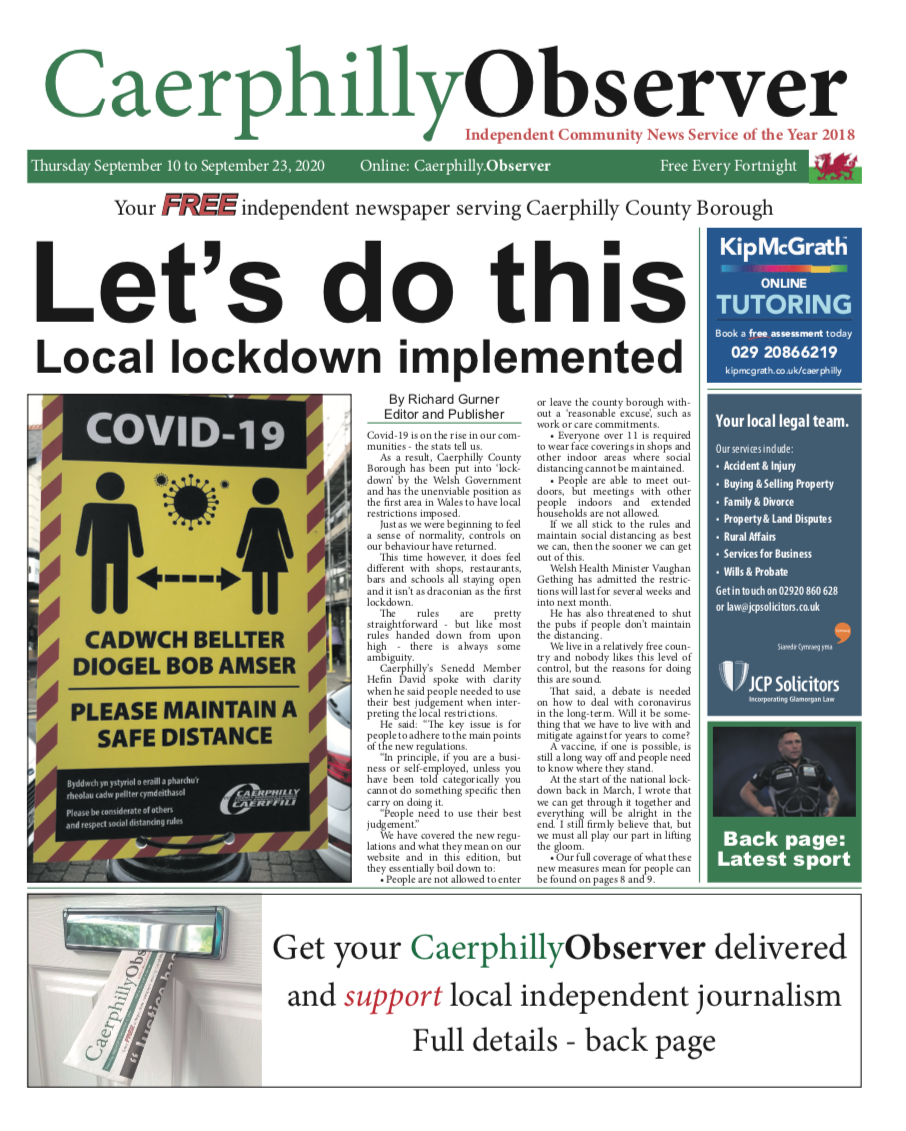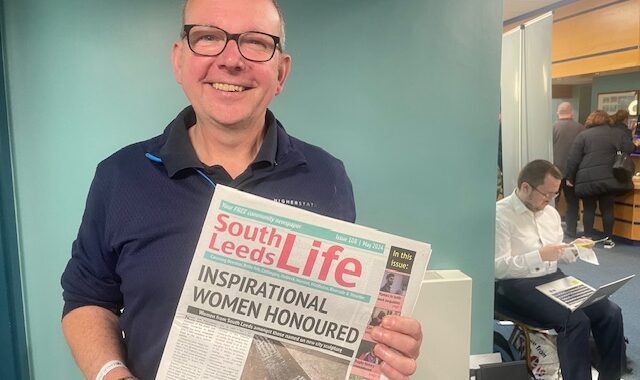The headline of the current issue of the Caerphilly Observer reads: ‘Let’s do this’.
It is, of course, referring to the local lockdown imposed upon the county borough last week.
Caerphilly is the first place in Wales to have local restrictions reintroduced due to the rapidly increasing infection rate of COVID-19.
But the headline isn’t just a rallying cry to readers to hunker down and wait out the storm; it reads as a call to action to the small Observer team themselves, who have, since the start of the nationwide lockdown back in March been fighting tooth and nail to keep the paper going and serve the community.
The Caerphilly Observer is the only local paper dedicated to covering the entire county borough of Caerphilly, which has a population of over 180,000.
The success of the Observer as a newspaper in a digital age is down to the high-quality journalism on show in each issue – journalism that is driven by a real passion to represent its area and hold power to scrutiny.
The small team works hard in the community to represent all facets of the society and cover all kinds of relevant news items, But crucially, it works with local businesses to maximise advertising revenue to drive its bi-monthly print run.
When the nationwide lockdown came into effect in March and local businesses were forced to close, newspaper advertising dried up almost completely.
For the Observer, which counts newspaper advertising as its main source of revenue, this was catastrophic.
Richard Gurner says: “If I stopped to think about it, it was a very scary time, and it still is.”
“The responsibility we have to our readers, and the pressures of keeping it going have been enormous.”
The Observer was forced to operate at a loss for a number of months during the height of the lockdown.
They furloughed their sales staff, reduced their print run to 10,000 issues, and went back to the drawing board.
Crucially they kept the paper going.
Fortunately, The Observer was sustained by money left over in the Welsh Government’s Independent Community Journalism Fund which was repurposed at the beginning of the lockdown.
“Without money from the Welsh Government’s Emergency Grant Revenue Fund, and the Google Digital News Initiative we’d be dead in the water,” says Richard.
“But that just helped pay our salaries for a month or two. After that, we really struggled.
“But my philosophy has always been: if there is money in the bank to pay the bills, I’ll keep the Observer going.”
As an independent newspaper that went to print every fortnight, the Observer didn’t ‘qualify’ to partner with the Government on its All-in, all together public health advertising campaign.
Yet somehow, the Observer saw its website traffic increase from 81,000 back in February to 95,000 in March when the lockdown hit. In July they saw traffic of 108,000 unique visitors to website, a record for the Observer.
This was a phenomenon that was repeated across the sector – proving that readers had a growing appetite for the locally relevant news that independent publishers are producing.
The Observer team took this as a sign that readers might be willing to pay for their content.
They set up a membership scheme to help support and grow their service.
The tiered membership model that gives readers the option of viewing the Observer ad-free and getting free home delivery of the paper has proved successful in generating revenue.
“But with a second wave coming, now is the time to get the advertising sorted and redefine our journalism”, says Richard.
Since the start of lockdown, the Observer has focussed more on ‘slow journalism, investigations, more in-depth reporting.
Richard says: “It’s all about getting behind the bumph, finding angles that aren’t being covered – these are the pieces that have been doing really well for us.”
“Even with the BBC’s Local Democracy content, we’re always asking, ‘how can this be developed?’”
Some advertising trickled back, but not nearly enough to maintain pre-COVID levels of sustainability. And with further restrictions on the county borough of Caerphilly the future of the Observer remains uncertain.
As COVID-19 measures divide politicians and communities alike, it’s empowering to see the Caerphilly Observer calling for collective action to beat the local lockdown.
Fighting the pandemic is a global challenge. Fighting for the future of journalism is too.
Richard said: “At the start of the national lockdown back in March, I wrote that we can get through it together and everything will be alright in the end. I still firmly believe that, but we must all play our part in lifting the gloom.”
Let’s all do this.





